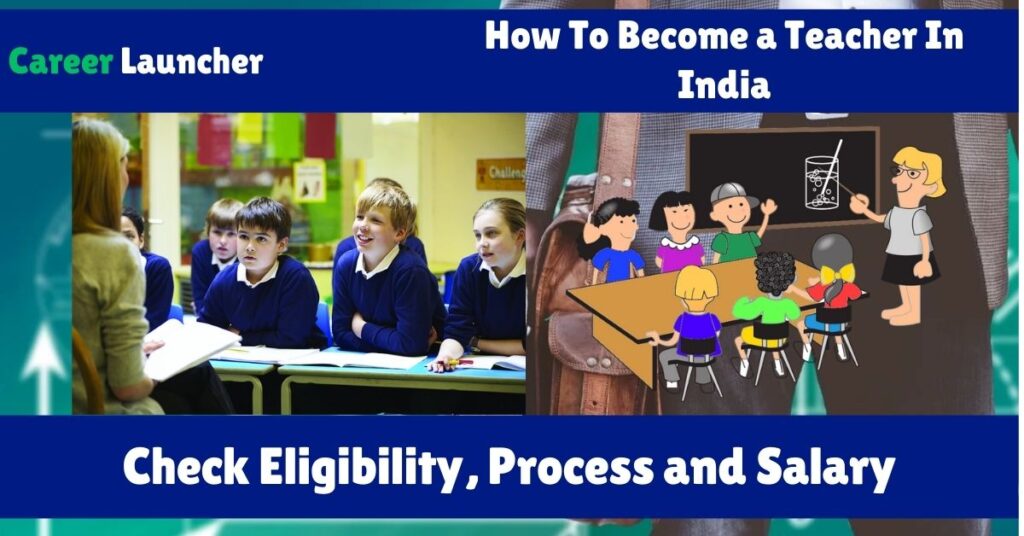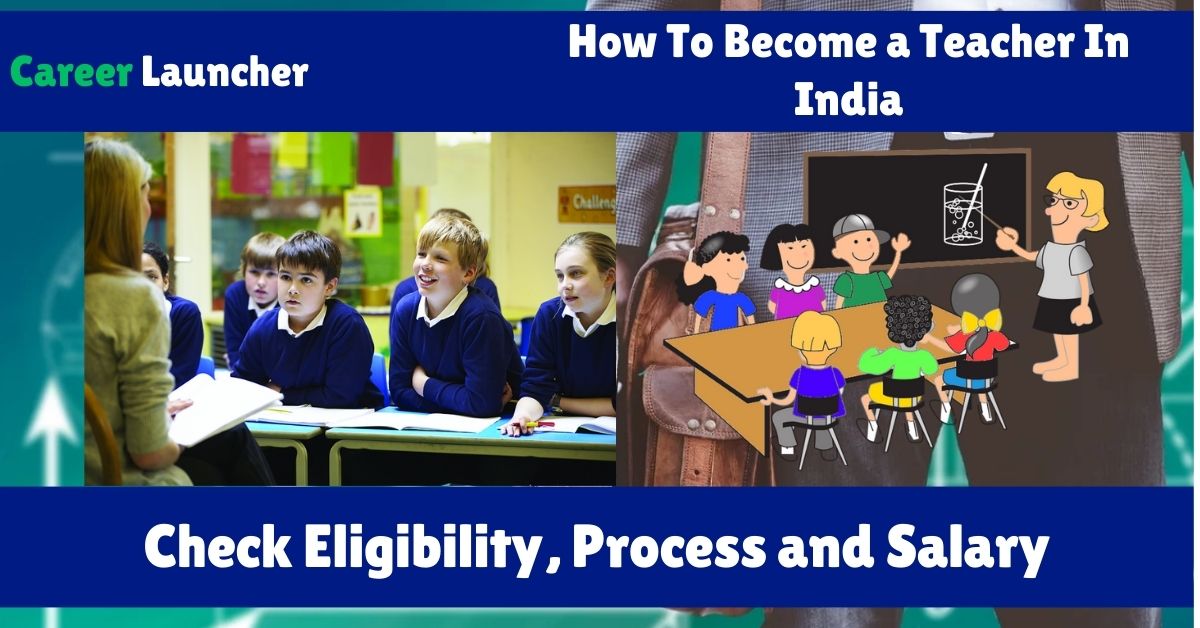Becoming a teacher in India requires dedication, proper educational qualifications, and a commitment to continuous learning. Whether you aim to teach in a primary school or a senior secondary school, understanding the eligibility criteria, completing the necessary steps, and being aware of the salary expectations will help you navigate this fulfilling career path. Teaching is not just a job; it’s a calling to inspire and educate future generations.
Eligibility Criteria To Become a Teacher
ecoming a teacher in India is a noble and rewarding career choice that allows you to shape the minds of future generations. If you’re passionate about education and want to make a difference, here’s a comprehensive guide on how to become a teacher in India, including eligibility criteria, the process involved, and salary expectations.
Educational Qualifications
- Primary School Teacher (Classes I-V):
- Academic Requirements: A minimum of 50% marks in 12th grade (senior secondary).
- Professional Courses: Diploma in Elementary Education (D.El.Ed) or Bachelor of Elementary Education (B.El.Ed).
- Secondary School Teacher (Classes VI-VIII):
- Academic Requirements: A Bachelor’s degree in any discipline.
- Professional Courses: Bachelor of Education (B.Ed).
- Senior Secondary School Teacher (Classes IX-XII):
- Academic Requirements: A Master’s degree in the relevant subject.
- Professional Courses: Bachelor of Education (B.Ed) or Master of Education (M.Ed).
Entrance Exams
- Central Teacher Eligibility Test (CTET): Conducted by the Central Board of Secondary Education (CBSE) for teaching positions in central government schools (like Kendriya Vidyalayas).
- State Teacher Eligibility Test (TET): Conducted by respective state education boards for teaching positions in state government schools.

Process of Becoming a Teacher
Complete Required Education
- D.El.Ed/B.El.Ed: Enroll in a recognized institution and complete the necessary coursework and practical training. These programs typically last 2-4 years.
- B.Ed: Enroll in a B.Ed program after completing your bachelor’s degree. This program usually lasts two years.
- M.Ed: For advanced teaching roles, especially at higher secondary levels, a Master of Education (M.Ed) can be beneficial.
Gain Teaching Experience
- Internships and Teaching Assistantships: Many education programs include mandatory internships or assistant teaching roles, which provide hands-on experience in a classroom setting.
- Volunteer Work: Engaging in volunteer teaching roles can also add valuable experience and enhance your resume.
Clear Teacher Eligibility Tests
- Preparation: Utilize study guides, join coaching centers, or participate in online courses specifically designed for CTET or state TET exams.
- Exam Pattern: Familiarize yourself with the exam pattern, which typically includes sections on child development and pedagogy, language proficiency, and subject-specific knowledge.
Apply for Teaching Positions
- Job Portals and School Websites: Regularly check job portals like Naukri, Indeed, and LinkedIn, as well as the official websites of schools.
- Education Departments: Visit the education department websites of your state or the central government for official job notifications.
Attend Interviews and Demonstrations
- Interviews: Prepare for interviews by brushing up on your subject knowledge, teaching methodologies, and current educational trends.
- Teaching Demonstrations: Be ready to conduct a sample class or teaching demonstration, which is often part of the selection process.
Continuous Professional Development
- Workshops and Seminars: Participate in educational workshops, seminars, and conferences to stay updated with the latest teaching techniques and educational technologies.
- Advanced Degrees and Certifications: Consider pursuing advanced degrees or specialized certifications to enhance your qualifications and career prospects.
You May Also Check
- How To Become a Pilot in India, Check Eligibility, Process and Salary
- How To Become an Income Tax Officer, Check Eligibility, Process and Salary
- How To Become IAS Officer -Eligibility Criteria for the IAS Exam
- How To Become a Judge in India, Check Eligibility, Process and Salary
- How To Become a Teacher In India, Check Eligibility, Process and Salary
Salary Expectations
The salary of a teacher in India varies based on factors such as the type of school (government or private), location, and the level of teaching. Here’s a detailed overview:
- Primary School Teacher:
- Government Schools: ₹20,000 – ₹35,000 per month. Benefits may include housing allowances, health insurance, and pensions.
- Private Schools: ₹15,000 – ₹30,000 per month. Benefits vary greatly and may not always match those of government positions.
- Secondary School Teacher:
- Government Schools: ₹25,000 – ₹45,000 per month. Benefits often include job security and retirement plans.
- Private Schools: ₹20,000 – ₹40,000 per month. Salaries in reputed private schools can be competitive, sometimes exceeding government pay scales.
- Senior Secondary School Teacher:
- Government Schools: ₹30,000 – ₹50,000 per month. Senior teachers with additional responsibilities or leadership roles can earn more.
- Private Schools: ₹25,000 – ₹45,000 per month. High-end private institutions may offer salaries on the higher end of this range or beyond.
- Additional Benefits:
- Professional Growth Opportunities: Government teachers have access to regular training and promotions. Private school teachers may have opportunities for quicker promotions based on performance.
- Pension and Retirement Plans: Government teachers benefit from robust pension schemes, while private school teachers may need to rely on provident funds and other retirement plans.
Conclusion
Embarking on a teaching career in India requires a blend of the right educational qualifications, practical experience, and a commitment to continuous learning. Whether you aim to teach young children in primary schools or specialize in higher secondary education, understanding the eligibility criteria, navigating the process, and having realistic salary expectations will help you achieve your career goals.
Teaching is more than just a profession; it’s a vocation that involves dedication, patience, and a passion for nurturing young minds. With the right preparation and mindset, you can build a rewarding career that makes a lasting impact on society.
For more detailed guidance and resources on how to become a teacher in India, visit Career Launcher, your trusted partner in career development. Here, you will find the support and information you need to excel in your teaching career.

